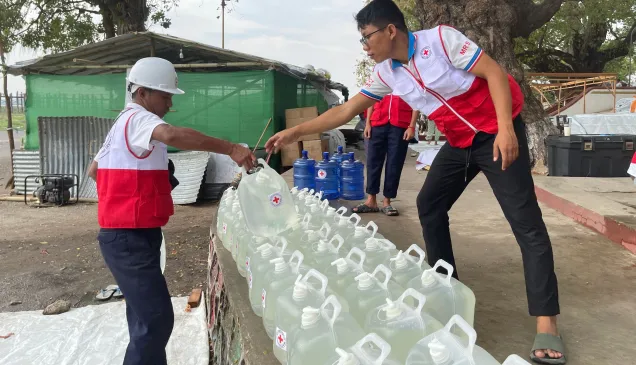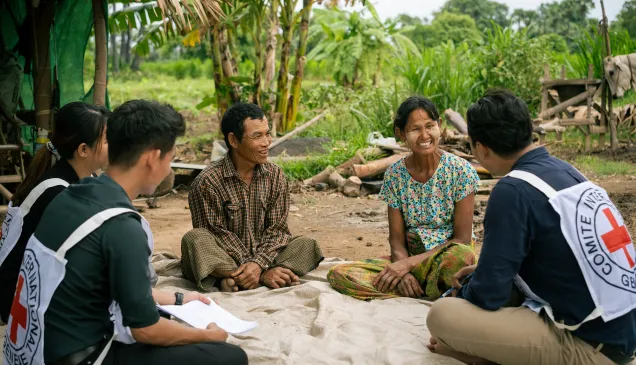ICRC and MRCS joint-operation in Mindat: “Much more remains to be done”
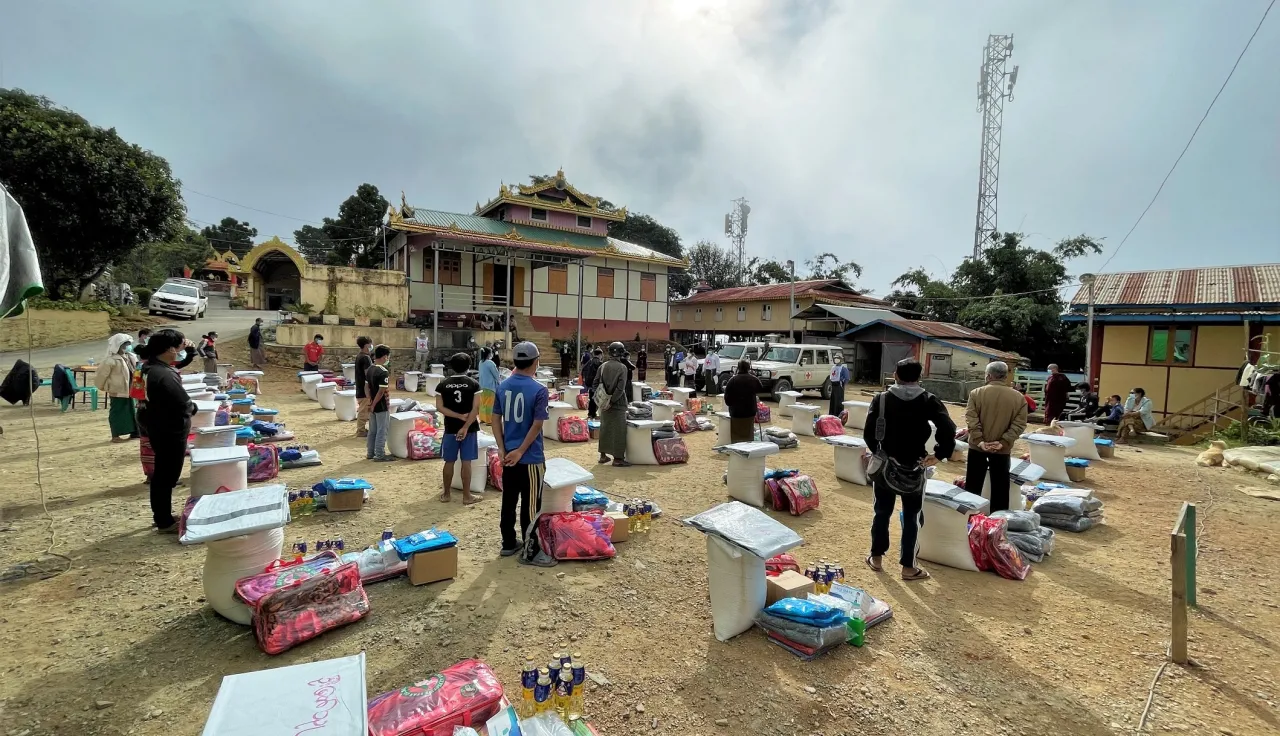
A family of labourers, unable to find regular work to feed their growing children. A priest who shelters others but cannot access the monthly heart medication he needs to live. A young girl separated from her family, struggling to carry bags of rice home without support.
These are just some of the stories our team in Chin State's Mindat witnessed during a relief operation run together with the Myanmar Red Cross Society (MRCS) last month.
Seeking to provide emergency relief in the downtown area to thousands of people affected by violence, the operation lasted three weeks, encountering numerous obstacles on the way.
"We waited two weeks for a bridge that had collapsed due to heavy rains to be repaired," said ICRC team leader Kyaw Myint Htun.
"Just as we were ready to cross, it was damaged again in an explosion, causing further delays."
Reaching Mindat was like reaching a ghost town. Once busy streets are now empty. Red Cross teams would sometimes stop in Mindat on the way to deliver aid in other areas of Chin State.
"We would buy goods or garments as presents, have tea, visit the beautiful markets, which were always crowded," said ICRC field officer Kyaw San Wai.
"Now the city is silent." Doors stay closed and locked. Only a few shops or vendors stay open. Rice is in short supply. Medicine is hard to find. And livelihoods – whether trade, farming or labour – have ground to a halt.
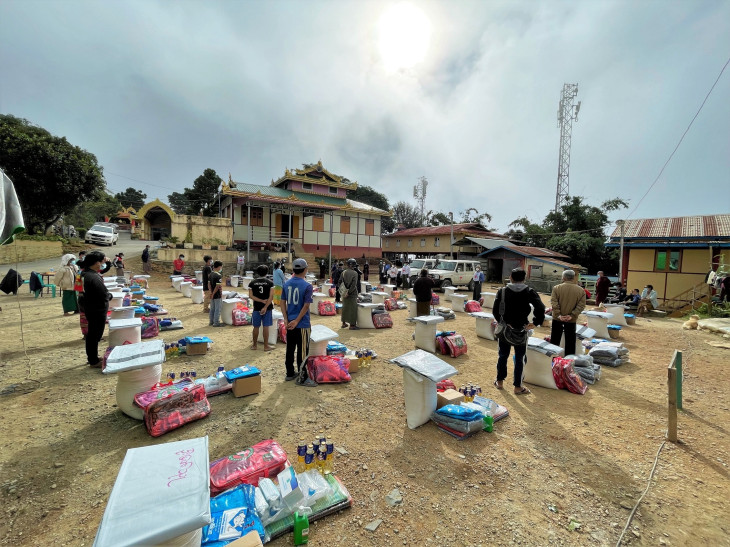
The numbers tell a story. Around 10,000 people are thought to have fled fighting in Mindat, hiding in the city's surroundings or neighbouring villages. A few thousand more have fled into neighbouring Magway and Sagaing regions. An estimated 6,000 people remain in the city, under martial law,some sheltering in monasteries or churches.
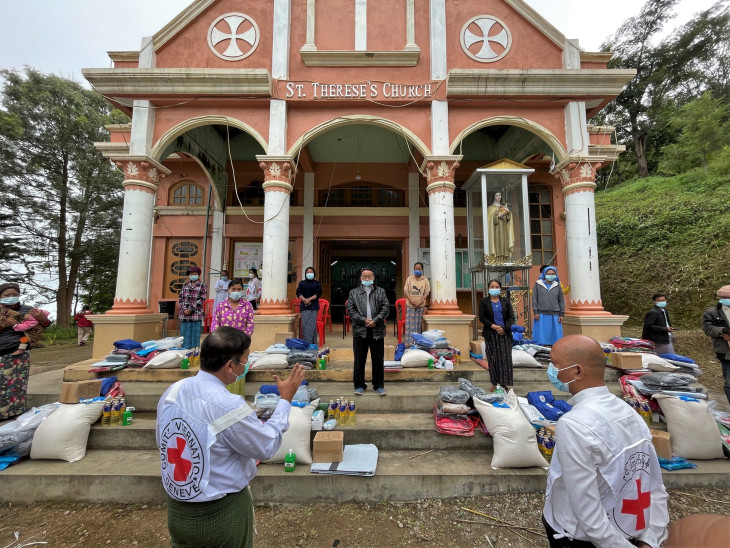
On this trip, we were able to provide emergency assistance to around 900 people – in the form of food, tarpaulins, blankets and hygiene kits. MRCS teams also provided cash assistance and mobile health clinic services, reaching 2,300 patients from 47 villages.
"People in Mindat face multiple challenges all at once," said ICRC Central Myanmar Operations Manager Olivier Dorighel.
"Alarmed by these overlapping impacts, we urge all weapon bearers to take all possible measures to limit the impact of violence on people who do not participate in hostilities."
Knowing that thousands still urgently need help in areas surrounding Mindat, and tens of thousands in broader Chin State, where fighting continues to the west, much more remains to be done.
Work is already underway to return to Mindat, to help those we haven't been able to support yet. To ensure this vital work can continue, better and sustained access for humanitarian assistance must be preserved – especially in areas outside the city.


